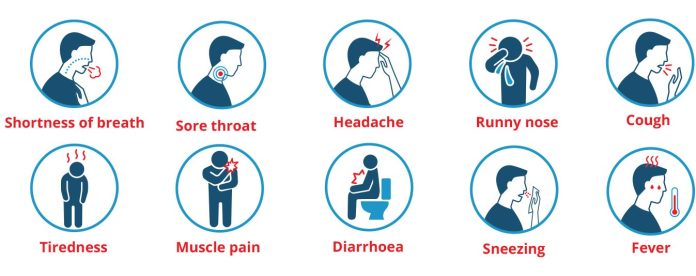…We are monitoring new sub variants, says NCDC
Medical experts have urged the Federal Government to strengthen the surveillance system to prevent new subvariants of the Omicron variant of the SARS-CoV-2 virus, named EG.5 and BA.2.86 – BA.2.86 and EG.5 in the country.
They also advised Nigerians to strictly observe COVID-19 protocols.
On August 9, 2023, the World Health Organisation designated EG.5, a descendant lineage of XBB.1.9.2, and its sub-lineages as a variant of interest.
EG.5 is a sublineage of the omicron variant and has been detected in 51 countries, including China, the United States of America, the Republic of Korea, Japan, Canada, Australia, Singapore, the United Kingdom, France, Portugal, and Spain.
The risk assessment conducted by the WHO showed that the EG.5 variant poses a low risk at the global level.
While EG.5 has shown increased prevalence, growth advantage, and immune escape properties, there have been no reported changes in disease severity to date.
According to the Africa Centres for Disease Control and Prevention, the presence of EG.5 or the sub-lineages of the coronavirus has been reported in Uganda, Egypt, Cape Verde, and South Africa.
Also, the WHO and the US health authorities had said they were closely monitoring a new variant of Covid-19, although the potential impact of BA.2.86 is currently unknown.
WHO designated the COVID-19 variant BA.2.86 as a ‘variant under monitoring’ due to the large number of mutations it carries.
So far, only a few sequences of the variant have been reported from a handful of countries.
The BA.2.86 variant has also been identified in Israel, Denmark, the United Kingdom, and the United States of America.
The newly identified variant has a high number of mutations and is genomically distant from both its likely ancestor, BA.2, and from currently circulating XBB-derived variants.
There is currently insufficient data to assess the relative severity or degree of immune escape compared to other currently-circulating variants.
Meanwhile, the Nigeria Centre for Disease Control and Prevention in a press statement on Saturday said the new EG.5 and BA.2.86 subvariants of the Omicron variant of the SARS-CoV-2 virus have not been identified in Nigeria.
The NCDC, however, said it is monitoring the new subvariants.
The agency also said there is no need to cause unnecessary anxiety and panic.
“As we have consistently advised, COVID-19 is here to stay and is now mainly a problem for those at high risk – the elderly, those with underlying chronic illnesses especially hypertension, diabetes, those on cancer treatment, organ transplant recipients and those whose immune systems are suppressed for one reason or the other.
The NCDC’s COVID-19 Technical Working Group is closely monitoring COVID-19 epidemiology – local, regional, continental, and global – including emerging variants. Our influenza sentinel surveillance sites continue to provide information on COVID-19 prevalence in patients with influenza-like illness and severe acute respiratory illness. We have not observed any increase in trend of COVID-19 in this patient group.
“We continue to carry out genomics surveillance even with the low testing levels and encourage testing locations in states to ensure their positive samples are sent on to the NCDC for sequencing.
“Unrelated to the news of these emerging variants, the NCDC and partners are working on implementing an enhanced COVID-19 testing exercise in four states to obtain complementary and more detailed information about circulating variants in the country. In addition, COVID-19 rapid diagnostic kits are being distributed for the purpose of improving bi-directional COVID-19 testing,” the statement read in part.
A virologist at the Department of Virology, College of Medicine, University College Hospital, Ibadan, Dr Moses Adewumi said while the new variants should not be a cause of undue concern, its emergence calls for greater surveillance.
Dr Adewumi said, “The world is a global village and things can fly around, so we should not relax on our surveillance system.
“As for Nigerians, we need to continue to adhere to COVID-19 protocols like wearing of face masks, maintaining social distancing, and other precautive measures.”
Also, a medical virologist at the Adeleke University, Ede, Osun State, Dr Oladipo Kolawole said, the first most effective way to protect against COVID-19 and its variants, including the EG.5 and BA.2.8 subvariants is vaccination.
“It is recommended to get vaccinated with a booster shot. Following public health guidelines, such as wearing masks, practicing social distancing, and avoiding large gatherings, can help reduce the risk of contracting and spreading the virus, including its subvariants.
“Similarly, staying informed about the latest developments and recommendations regarding COVID-19 and its subvariants can help individuals and organizations make informed decisions and take appropriate actions,” he said.
Globally, as of August 16, 2023, there have been 769,806,130 confirmed cases of COVID-19, including 6,955,497 deaths, reported to WHO.
As of 20 August 2023, a total of 13,499,865,692 vaccine doses have been administered.


